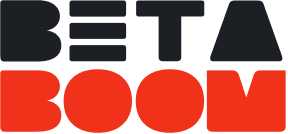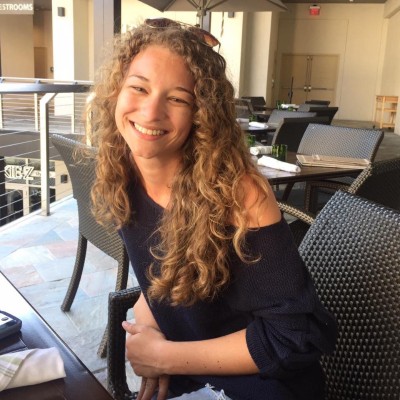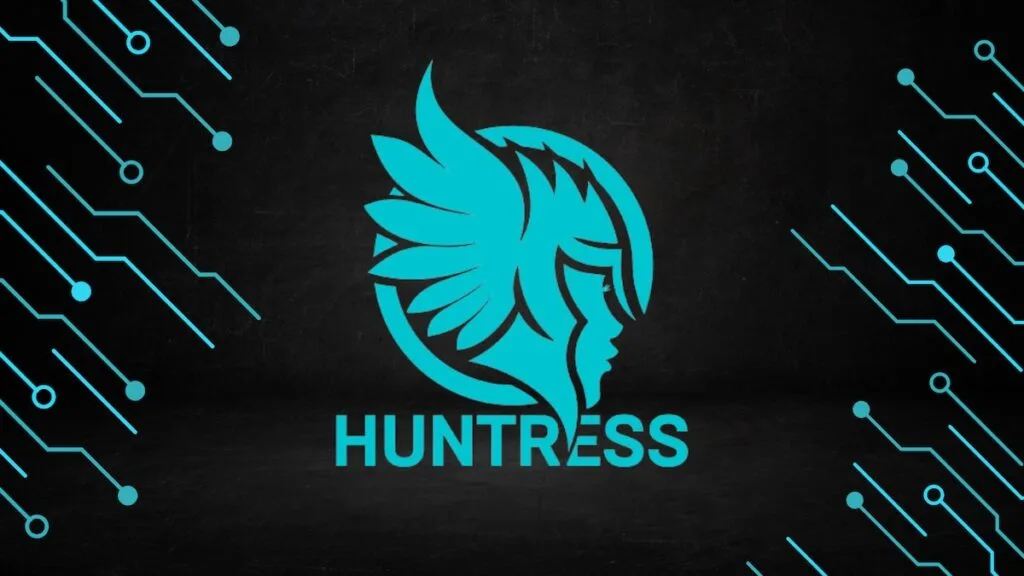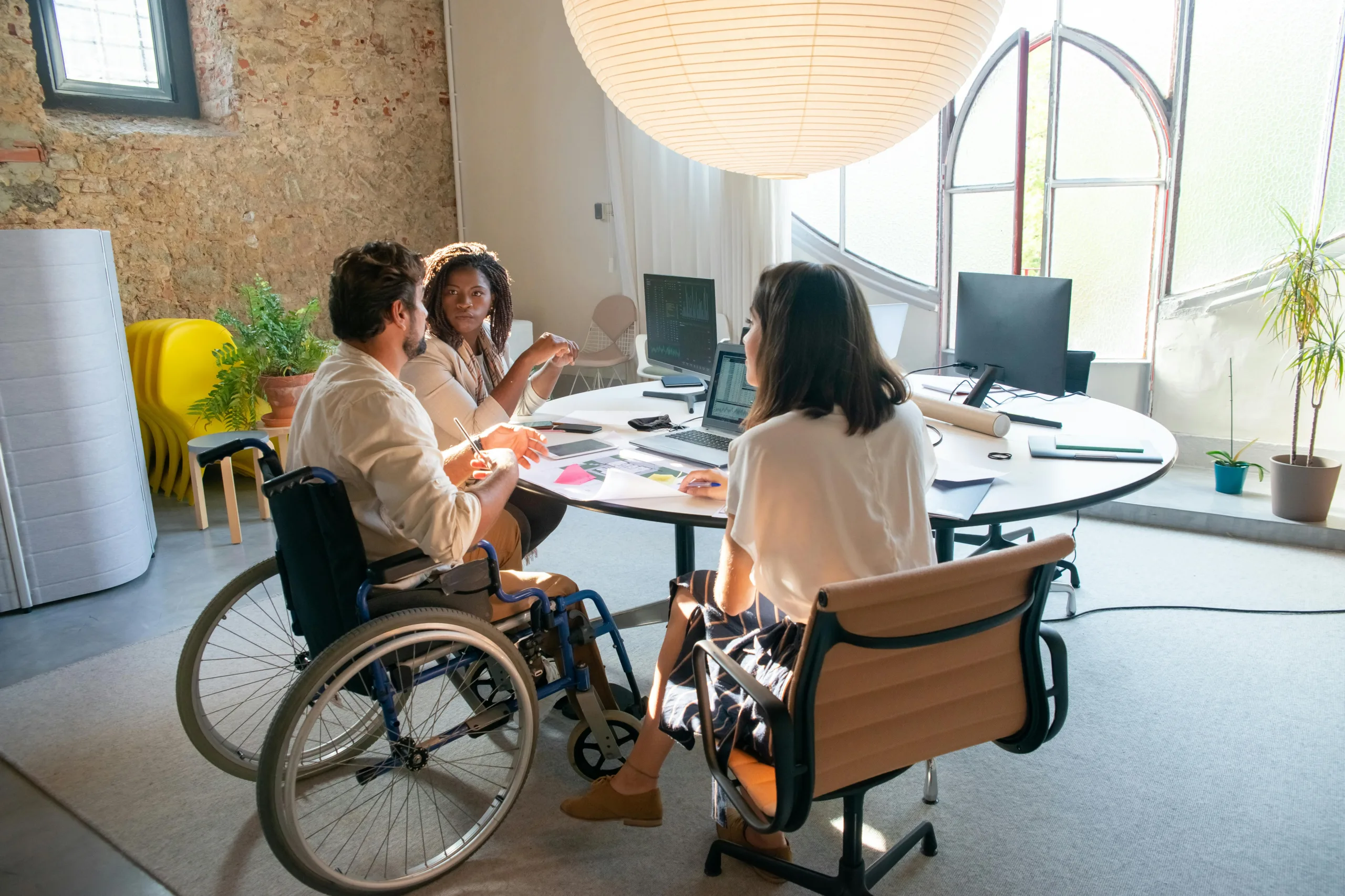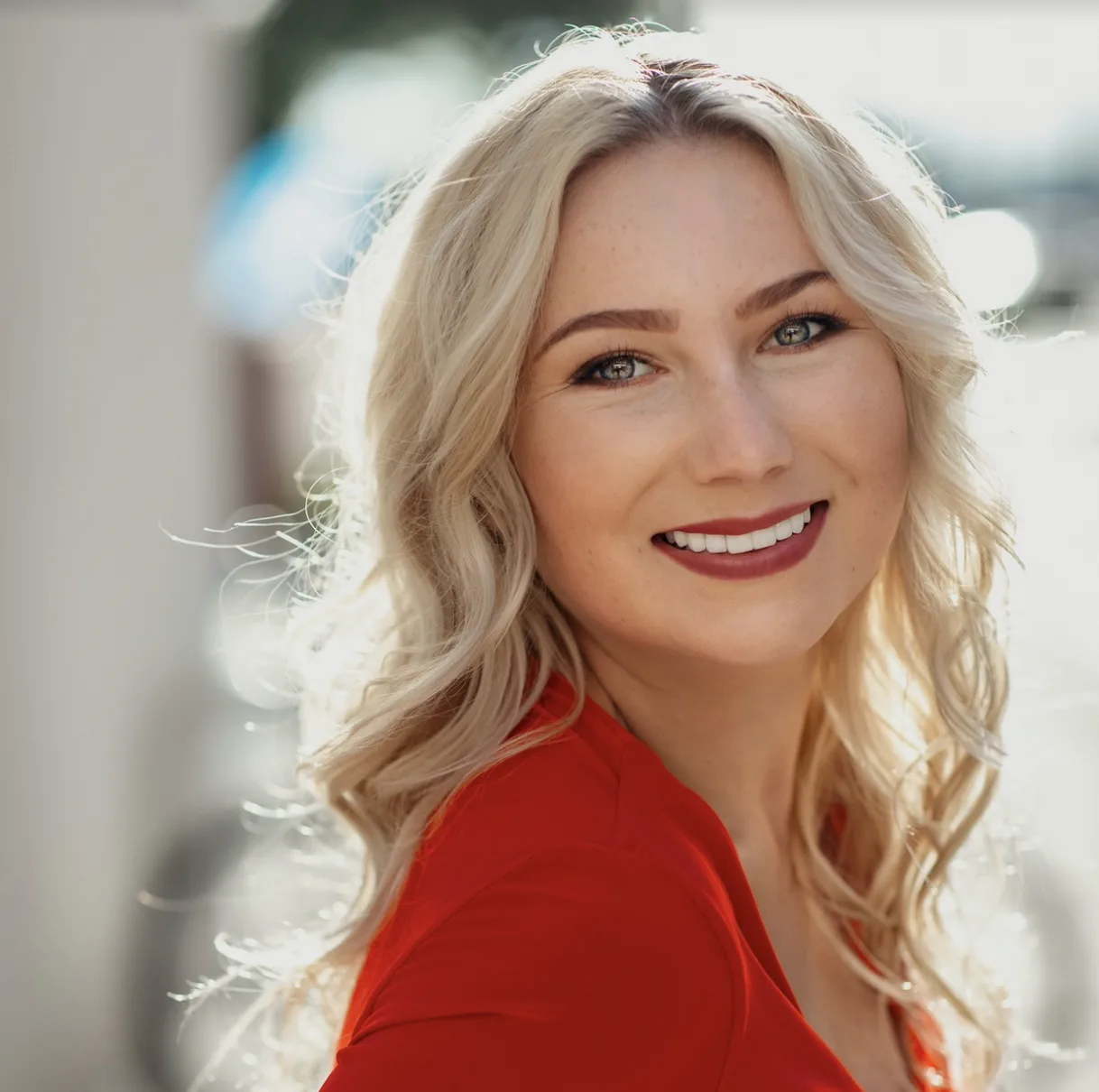History has shown that, as a whole, society fails to consider it's disabled population when building empires. Unfortunately, that hasn’t changed much today, especially when it comes to venture capital (VC) funding.
Despite one in four Americans living with a disability, this group faces persistent barriers that keep higher education and entrepreneurial opportunities out of reach. For Regina “Gina” Kline, Founder and Managing Partner at Enable Ventures, this is unacceptable.
After 20 years defending the disabled as a civil rights lawyer, representing groups like National Federation of the Blind, her career choice grew into a community. This offered insight that eventually became a solution to the biggest hurdle for the disabled: access.
During this time, Gina noted the rapid advancement of technology and the possibilities of the growing disabilitytech sector. But she also saw a severe lack of investment in the community. Gina says she saw venture as a way to create real equitable change, so she entered the market as an impact investor.
The connection between disability rights and tech investment was obvious to Gina, even when it wasn't to others. “What we're seeing is that rights have everything to do with remedies,” she implores.
“We have not endowed people with the same access to tools as other workers or other students,” she says, which are burdens in both the physical and digital worlds. “It's really the tools themselves that have been a crucial agent in separating people from the economy.”
But she says all of that is rapidly changing. “The delightful thing is that, in the march towards progress, where we are has everything to do with the ADA generation.”
The ADA generation – those born in the 1990s, post-Americans with Disabilities Act – are uniquely equipped to set new standards for inclusivity. They are demanding that the technological gap be closed, which would allow them easier access to the larger world.
Some are even taking things into their own hands. “They are requesting access to their own capital to build their own businesses, so we as a fund exist because of them.”
“So these things have everything to do with one another,” she says. “And this is sort of the unfinished business of making that real – that's sort of the ethos of our firm too.”
Gina delves further into why disabled founders deserve space in VC and what she has learned from working alongside these entrepreneurs.
Why Funding Disabled Founders Matters
A recent report revealed that disabled founders were 400% less likely to secure venture capital. Why does that matter and why do we need disabled funders?
This is we're ushering in a new era in which we're aligning capital with those founders. It's absolutely crucial to understand that disability is a horizontal that runs through other social identity groups – women, people of color, the aging population – so what we have is like a rich heterogeneity to disability
We also have people with multiple social identity groups who are dramatically underrepresented in venture capital, and in entrepreneurship in general. It's important to recognize that we're at the beginning of a new day. It's a really unique opportunity for founders with disabilities, who may also be a member of other historically underrepresented groups, to access capital.
These founders are baking in different experiences into the product design and technology that has the potential to dramatically change the technology market and the types of tools that we have available to us.
Finding the Right Investor
I think a lot of the founders that we work with are very excited that there are investors that see the disability-led founder generating value instead of cost or deficit. Not seeing them as charity or because it's the right thing to do – although it is – but because they understand that human centered design is the most efficient and effective way to provide an elevated customer experience.
The fact that there are investors in this mindset is a watershed moment in the capital markets for these founders. They're finding comfort from knowing their investors will see that growth as an impact multiplier opportunity with the potential to meet the technological needs of millions of disabled people.
I think that they're looking for investors that understand that the strength of their technology design can really predicate driving equity but also can create a really strong business case.
Standout Founder Qualities
I think the strongest founders have the highest conviction. Some of the quickest ways to discern the strength of that conviction and whether there's validity in go-to-market execution is the feedback and iterative process by which the product was designed.
How close is this founder to the solution they are calling forward and who is informing their design of this product? How urgent is the need that's being fulfilled by the community and how many people will be benefited by the product?
We are always looking for product market fit with the buyer and willing payer.
Confronting Imposter Syndrome
I think that there is something delightfully equalizing about the experience of entrepreneurship across the disability community – and across the community period.
I was just having this conversation with a dear friend, who's a self-advocate and identifies with disability strongly. She was saying, ‘I experience imposter syndrome every day. I've spent my life feeling othered. Can I do this?’ And I said, ‘me too.’
Not saying that from the predisposition of disability, but as a person who also has been on that journey of starting a fund and taking entrepreneurial risks every day. Everybody is taking a risk and everybody experiences self-doubt.
So it's just about motoring through – it is the only way I can describe it.
About Enable Ventures
Website | LinkedIn | Crunchbase
Enable Ventures is focused on closing the disability funding gap by backing companies that deliver both financial returns and meaningful impact for underserved disability communities. The firm pursues high-quality deals that advance economic inclusion while proving disability is a powerful market opportunity – establishing itself as a leader in the DisabilityTech space.
